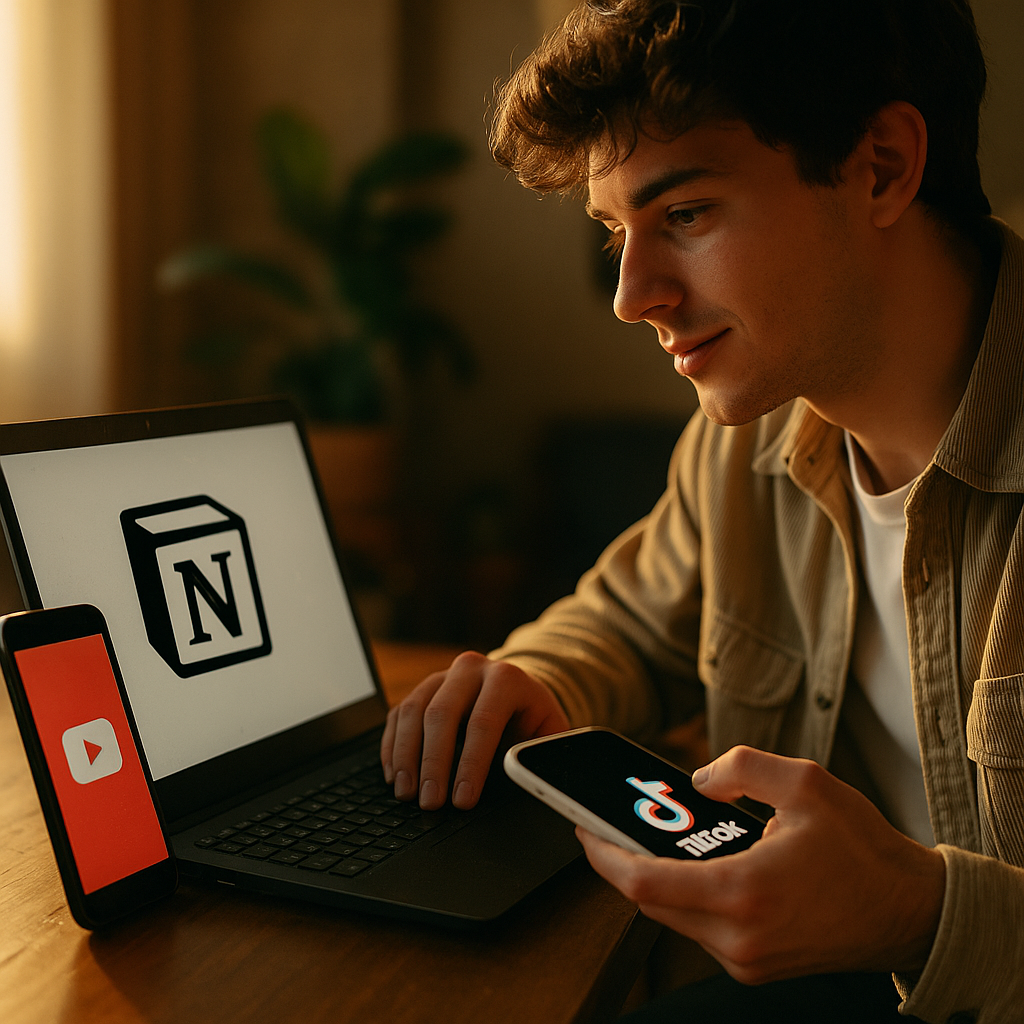In 2025, Notion continues redefining digital productivity, due in large part to its strategic partnerships with niche productivity influencers on YouTube and TikTok. This case study explores how Notion leverages influencer marketing to organically grow its user base and increase engagement—uncovering actionable insights you can apply to your own brand’s growth strategy.
Building Trust and Reach with Productivity Influencers
Notion’s collaboration with productivity influencers is not random—it is a targeted effort focused on creators whose audiences are already invested in time management, organization, and workflow optimization. By working with established voices on YouTube and TikTok, Notion taps directly into communities that value actionable content and efficiency. This approach aligns with Google’s EEAT (Experience, Expertise, Authoritativeness, Trustworthiness) guidelines by prioritizing creators who have demonstrated deep expertise and authentic experiences using the tool.
For example, YouTube channels like Ali Abdaal and TikTok creators such as studyquill provide in-depth demonstrations of Notion’s features. These influencers share templates, productivity hacks, and personal testimonial content, helping viewers understand the platform’s value through real-world examples. This trust-based marketing strategy consistently leads to high conversion rates, as audiences view these recommendations as credible and unbiased.
Why Notion Prioritizes Micro and Niche Influencers
Unlike brands that focus solely on top-tier influencers, Notion actively cultivates relationships with micro and niche creators who serve tightly knit, loyal communities. These influencers often have between 10,000 and 100,000 engaged followers but demonstrate higher engagement rates compared to mega-influencers. According to 2025 data from Influencer Marketing Hub, micro-influencers on TikTok and YouTube consistently see engagement rates above 8%, far surpassing those of larger creators.
By nurturing micro-influencer partnerships, Notion ensures that its promotional messages feel personal and tailored, enhancing both reach and audience relevance. Additionally, these smaller creators often bring fresh perspectives and innovative use-cases to the platform—showcasing diverse workflows, academic templates, or business dashboards that inspire unique adoption paths for new users.
Content Formats: Tutorials, Challenges, and Relatable Storytelling
The success of Notion’s influencer marketing on YouTube and TikTok is largely due to the versatility and authenticity of the content produced. Influencers frequently publish:
- Step-by-step tutorials: Detailed guides showing how to create wikis, databases, and systems within Notion.
- Template sharing: Free and premium templates for managing tasks, budgeting, or study schedules—enabling instant value for viewers.
- Challenges: Time-limited organization or productivity challenges that incorporate Notion as the go-to solution for effective results.
- Storytelling: Personal “before and after” productivity journeys, highlighting measurable improvements enabled by Notion.
On TikTok, short-form content like “Notion in 60 Seconds” often goes viral, driving trends and inspiring viewers to try the tool themselves. Meanwhile, YouTube’s long-form reviews and case studies offer deeper dives that foster continued user engagement and education. This variety in content style broadens Notion’s appeal while lowering barriers for new users.
Exclusive Partnerships and Early Feature Access
In 2025, Notion stepped up its strategy by granting certain influencers early access to unreleased features and custom integrations. By doing so, Notion positions these creators as thought leaders and insiders, while collecting valuable feedback before launch.
For example, ahead of major Notion updates like AI-powered task automation and kanban board enhancements in 2025, selected YouTubers and TikTokers were invited to create review and demonstration videos. This generated pre-release buzz and ensured immediate user adoption post-launch. The behind-the-scenes previews also cultivated a sense of exclusivity, prompting viewers to subscribe or follow for continued updates on Notion’s latest advancements.
Measuring the Impact: Engagement, Sign-Ups, and Brand Loyalty
Notion’s influencer campaigns are data-driven, focusing on measurable outcomes such as:
- Referral sign-ups: Influencers provide unique links or promo codes, allowing Notion to directly attribute new user registrations.
- Feature adoption rates: Monitoring spikes in the use of newly released functions highlighted in influencer content.
- Community engagement: Tracking growth in official Notion forums, Discord groups, and social media mentions after major influencer-led campaigns.
- User-generated content: Analyzing the increase in templates and workflows shared by new users inspired by influencer videos.
According to recent statistics released by Notion, influencer-driven traffic now accounts for 37% of new user sign-ups—a 14% increase compared to 2024 figures. This underscores the tangible ROI of targeting niche productivity creators rather than relying on traditional display or search ads alone.
Key Takeaways for Brands Looking to Emulate Notion’s Success
Notion’s influencer strategy offers practical lessons for brands in any sector:
- Choose influencers based on expertise and community engagement, not just follower count.
- Foster long-term, collaborative relationships to enhance authenticity and trust.
- Experiment with diverse content formats, from short viral tips to deep-dive tutorials.
- Provide early access or exclusive insights to incent influencer participation and drive buzz.
- Track results with unique referral systems and measure both qualitative and quantitative outcomes.
By focusing on these pillars, brands can establish credibility, build stronger communities, and drive meaningful growth through influencer partnerships.
FAQs: Notion’s Influencer Marketing on YouTube and TikTok
-
How does Notion select which influencers to partner with?
Notion looks for creators with proven experience in productivity, organization, and digital tools. They prioritize influencers with engaged audiences and authentic content that aligns with Notion’s values.
-
What makes micro-influencers particularly effective for promoting Notion?
Micro-influencers foster close communities and achieve higher engagement rates. Their recommendations feel more personal and are often seen as more trustworthy than those from larger creators.
-
How does Notion measure the ROI of their influencer campaigns?
Notion tracks unique referral links, sign-ups, community interactions, and the spread of user-generated content to evaluate the effectiveness and reach of each influencer partnership.
-
Can other brands apply Notion’s strategy to their own influencer marketing efforts?
Absolutely. Brands in any sector can collaborate with niche influencers, focus on trust and authenticity, and prioritize data-driven campaign measurement to achieve similar success.
In summary, Notion’s strategic use of niche productivity influencers on YouTube and TikTok in 2025 has driven exceptional growth, brand loyalty, and innovation. By embracing authentic partnerships and actionable content, any brand can harness the power of influencer marketing to transform its reach and impact.
